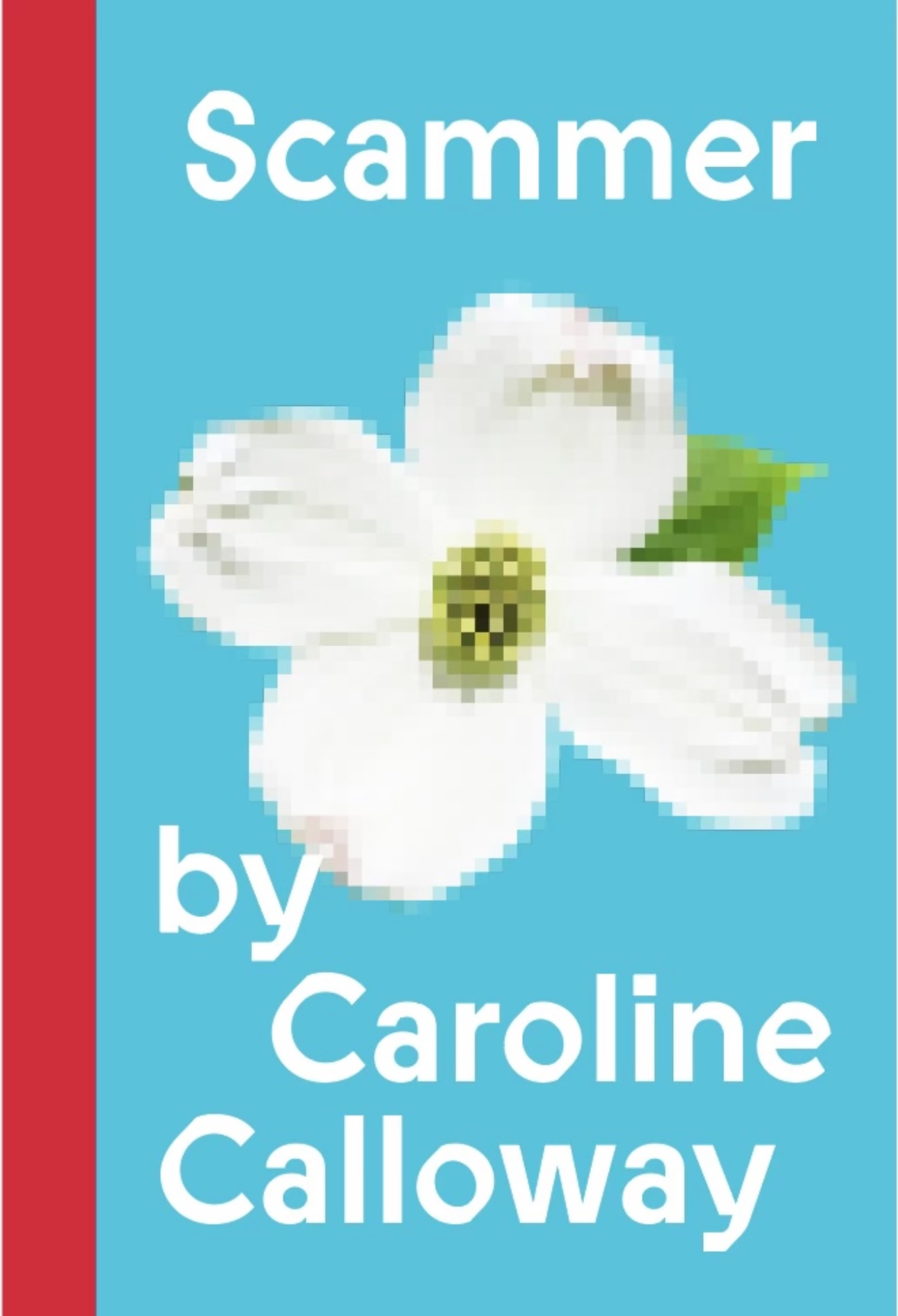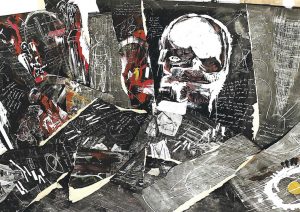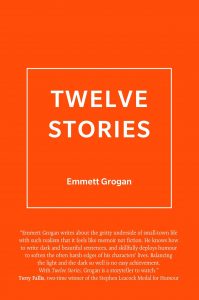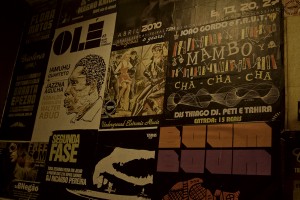
Is Caroline Calloway a Scammer?
by Marianne Doherty | November 14, 2023
Our relationship ended the way it was always going to end: influencer/memoirist Caroline Calloway ignored my follow-up texts asking for an interview. But before the dream died, she sent The Isis her book. This slim memoir, Scammer, is composed of 67 chapters, most not longer than two pages. She describes it as a “daybook”—a book to be read in one day, with deliberate echoes of “daybed”. Along with the book came a very sweet personal note which included a reference to a mason jar she had included (there was no mason jar) and a nod to Brideshead Revisited. Scammer, which has been reviewed in The New York Times, The Independent, and Vogue (her range!), is particularly exciting because Calloway’s been promising a book since 2013. She got famous for American-in-Cambridge type captions. She got a book deal, which she did not fulfil because of an Adderall addiction. Until now, her writing has only been available on Instagram.
Caroline Calloway dreams of other people’s ideas. Like, literally. On page 40 of her memoir she dreams of her past, and:
Always the premise of my terror is this: I will have to live my whole life over a second time, starting from this second.
Compare to Nietzsche:
What if some day or night a demon were to steal after you into your loneliest loneliness, and say to you, “This life as you now live it and have lived it, you will have to live once more […]”
The affinity is there. Much like Nietzsche, Caroline Calloway has changed paths (she began a degree at NYU, but left it in favour of Cambridge); got famous (took off as an Instagram influencer for her ‘adventuregrams’ posts about Cambridge, castles, and her Swedish boyfriend); fell off (reneged on a book deal about her time at Cambridge and was the subject of a tell-all by her former best friend, Natalie Beach who had actually written the book proposal and some of the captions); got cancelled (for the ghostwriter thing and for selling $165 tickets to creativity workshops for which she had not booked venues). The Calloway defence, now reflexive for me, is that a) Beach wrote the Instagram captions before Calloway got famous, so no one read them and b) even though she had to move all the dates for this national tour to her flat in New York, “when the Workshops happened, people effing loved them! […] It was the people FOR WHOM THIS EVENT WAS NOT EVEN DESIGNED, WHO NEVER ATTENDED IT, WHO DECIDED THAT $165 FOR TICKETS WAS A SC—”
Much of Calloway’s first book is about rancour. On her Instagram, she posts that she sped up the timing of her book to coincide with Beach’s. She says that insiders tell her she has outsold Beach. This is impossible to verify since Calloway’s is self-published. In a recurring daydream, she thinks of killing Beach with a bow and arrow: “I’m going to slit her jugular because I want to hit someplace, while still giving her enough time to see herself bleed out”—but “at the last minute, I decide not to target her at all”. “The difference between us,” she concludes, “is that she grew into the kind of adult who does that sort of thing, and I did not.” She rehashes one of the most famous moments from Beach’s essay, a holiday in Amsterdam where Beach had tried to sleep with a bartender, failed, and come back to the Airbnb to find herself locked out. Beach had written:
It was two in the morning, but one of the worst nights of my life was just beginning. Whether I huddled on the stoop, walked with my head down, or camped out in a train station, men always found me. I was harassed by a group of drunk Irish teenagers, Dutch crust punks, and a DJ who told me he wrote poetry about murdering Natalie Portman.
…
But then at noon, [Caroline] finally answered the door. Yawning, she asked me how my adventure went.
I pushed past her, shedding my filthy clothes in the hallway. “You have no idea what I went through last night,” I remember shrieking. “Why didn’t you answer your phone?”
She told me she assumed I was home with the bartender.
“This is what I tried to tell you,” I said, and for the first time I broke down. I stood in front of her in just my leggings and a bra, sobbing stupidly. “Men treat me differently than they treat you. Everyone does.”
Calloway’s rejoinder:
That [Natalie] would spend the night wandering the streets, huddling in bus stops instead of dipping into one of the many doorways under the neon signs for tourists never fucking occurred to me.
I see where they’re both coming from. Calloway’s voice is at its most literarily interesting when she is equivocal about Beach, whom she insists she was once attracted to: “I fucked a fat guy who looked like Natalie…Since NYU she’s gotten an adorable pot belly and chopped off all her hair into a pixie cut. This guy’s face looked eerily like a Hans Holbein of Henry VIII.” Interesting! She projects her former friend’s face onto a man, in whom, in turn, she sees the face of a dead man, and a former subject of study (she did Art History). There’s a streak of hatred and distaste throughout the Natalie chapters, at its most intriguing when it tries to conceal itself (the “adorable” Natalie resembles a HANS HOLBEIN OF HENRY VIII).
Calloway is less interesting in the chapters she dedicates to the “blue-hot supernova of New York’s in-crowd” circa 2019. This period of her life generates sentences like “the night before Honor Levy gave her reading with Dean Kissick at the Fuccboi launch party, she slept over at my turquoise apartment in the West Village” with alarming regularity. I mean, WHO ARE THESE PEOPLE? Towards the end, she recounts an episode where she sees her “dearest” Cambridge friends Will and Nancy in New York. She leaves. “Over [their] shoulders,” she writes, “I could see someone with more Instagram followers […] How had I not grown out of this?” It doesn’t quite land.
But then, her own unlikability is something she is writing about, too. She tells us that she had her boyfriend “reenact” some of Beach’s sexual assault with her, and you, remembering that this is a book with Beach’s real name in it and everything, think: “wow, that’s quite evil.” But she’s right there with you. She is not a role model, she admits. Her only goal is to be “honest”. This is “the life I’ve lived only so that I could one day write about it.”
In many ways, Calloway’s story is one of class disjunction. It is about what elite institutions (and England, for Calloway, was One Big Elite Institution) do to the people inside them. She writes of her family as “minor Florida aristocrats” fallen on hard times; “we once had money” is a classic middle-class conceit. In one of her best analytical moments, she writes that her boyfriend Oscar (rechristened Carl in Scammer) “was not the debonair and lordly heartthrob I’d later present him as on Instagram.” What “actually bound us together was the fact that we were both middle-class students at a university for aristocrats.” In a way it’s no big deal: it’s certainly not as challenging as actually being working class at Cambridge, an experience which Calloway does not seem to have come across. But on the other hand it’s everything to the ego: learning to pour champagne “we’d both grow into the characters I created for us.” Her writing about this disjunction is some of her best.
Shortly after Beach’s piece was published, Calloway’s father (unrelatedly) killed himself. The combination of events was torturous for Calloway, and some of her most moving writing is about it. She goes to a party at the Harvard Lampoon Castle, notices the uncanniness of their trompe-l’oeil ceiling beams, intimating, without giving, depth; of their electric chandelier; of their new medieval tapestries. “Kooky” is her word for it. As the sun comes up, she sneaks off to Adams House library, where her father had studied as an undergraduate. “My Dad [sic] killed himself in Falls Church,” she reflects:
in the hoarder house where I grew up—in pain and in debt. But in Adams House he was young, unhurt, and brilliant. […] Here, in one of these vacant wooden chairs beside me, my father was full of potential to change the world with his big, beautiful brain. Here, he could have closed his book and packed up his bag for the night and gone on to cure cancer or something—or at least not gone on to be such a destructive Dad [sic]. Here, he could have studied for a life that amounted to anything more than rage and filth and silence and suicide.
That got a good cry out of me. At the very end of Scammer, Calloway reproduces 34 lines from throughout the memoir. Reading them, one feels the vertiginous effect of time passing, first slowly, then quickly. It made me think about how much I care about Calloway’s life—how easy it is to be obsessive over small details about her. You have to admire her total commitment to life writing—she makes you admire it.∎
Words by Marianne Doherty. Featured image courtesy of Caroline Calloway.




